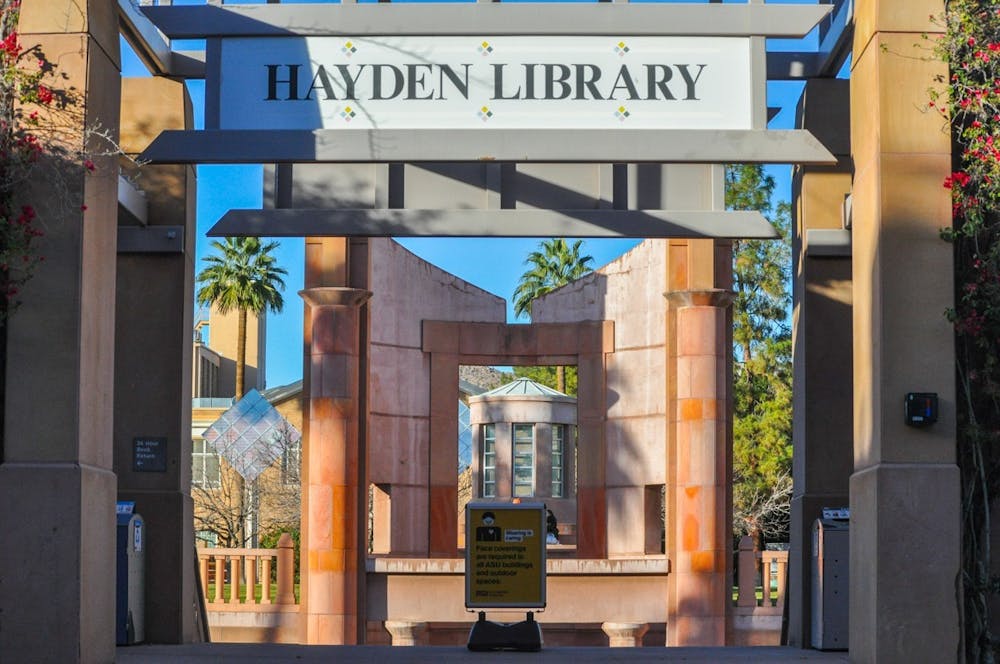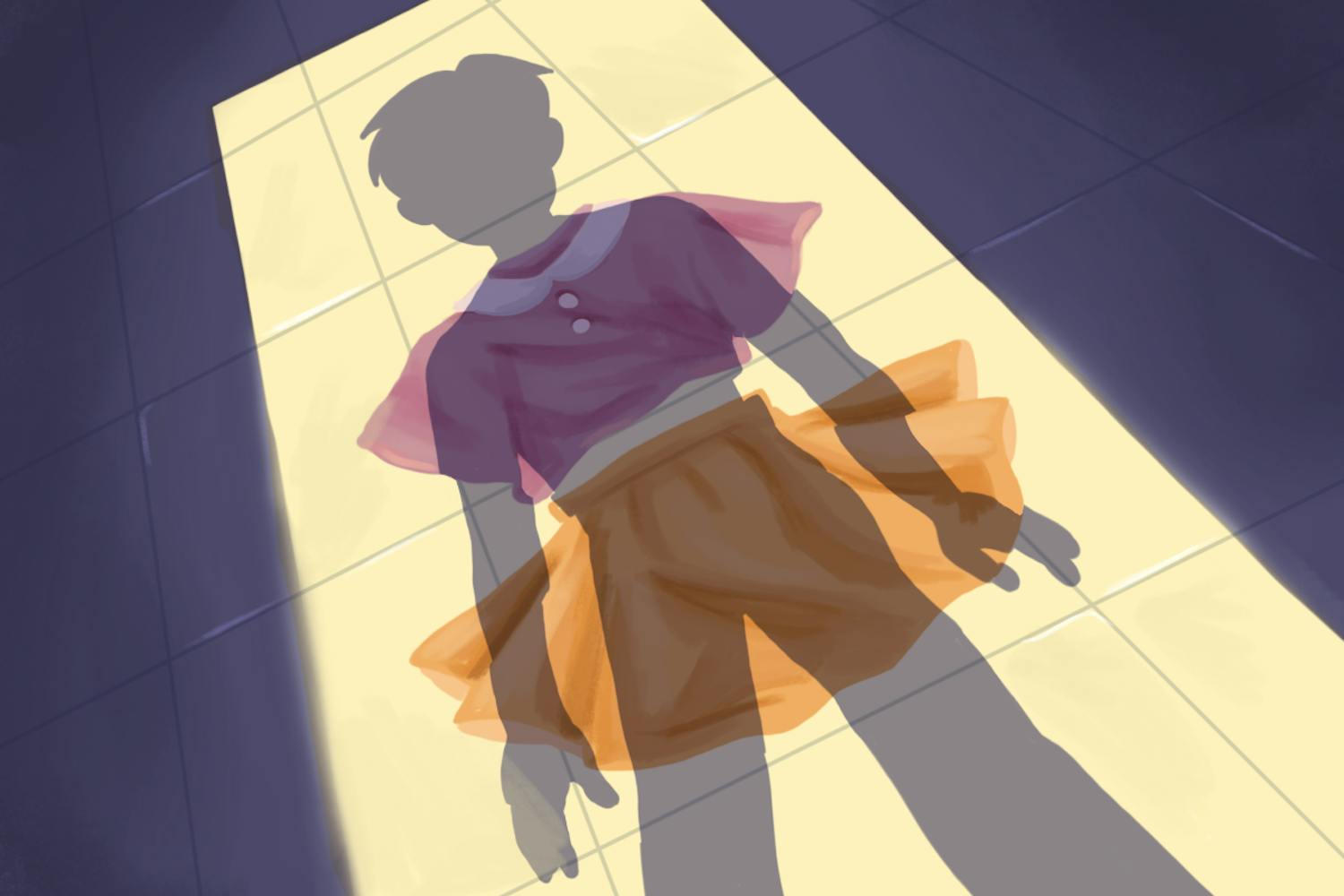In advance of the U.S. Supreme Court hearings on two legal challenges to the Biden administration's student loan forgiveness plan, a group of ASU students with the Arizona Students' Association camped outside the Supreme Court in Washington, D.C. on Monday night.
Kyle Nitschke, executive director of ASA, held a press conference outside of Hayden Library on the morning of Feb. 28.
"We are here today to celebrate our students in Washington, D.C. who have spent the night camping out for the student debt cancellation being heard at the Supreme Court this morning and to highlight the student debt crisis and increasing cost of college that is making it more and more difficult for Arizona students to pursue higher education," Nitschke said at the press conference.
The Arizona Student Association has advocated for student issues related to tuition increases, credit transfers and funding cuts. Nitschke said some of the ASU students in Washington, D.C. had the opportunity to watch proceedings related to the case. Later Tuesday, students attended the "People's Rally For Student Debt Cancellation" in D.C.
In the summer of 2022, President Biden announced his student debt forgiveness plan. If implemented, the plan would slash monthly payments for undergraduate loans in half, give up to $20,000 of relief to borrowers on Pell Grants, give up to $10,000 to non-Pell Grant borrowers and create income-based repayment plans.
READ MORE: Arizona Board of Regents implements new policy to lock in tuition rates
Several lawsuits were filed that challenged the executive branch's authority to wipe out over $400 billion in outstanding debt soon after Biden released the plan. One such lawsuit, argued before the Supreme Court on Tuesday, was filed by six states – Nebraska, Missouri, Arkansas, Iowa, Kansas and South Carolina. That lawsuit alleges that the president cannot grant student loan forgiveness without authorization from Congress, the controller of federal money.
Former Arizona Attorney General Mark Brnovich filed a lawsuit on behalf of Arizona to stop the plan in September 2022. The lawsuit was thrown out when Kris Mayes took the office in 2023.
Because the Supreme Court currently has a conservative supermajority, the president's plan is likely to face strong criticism from the bench in the coming months.
Proponents of the president's plan, including Secretary of Education Miguel Cardona, argue that under the Higher Education Relief Opportunities for Students Act of 2003, or HEROS Act, the secretary of education has the authority to modify or waive loan provisions in times of national emergency – originally for those affected by the 9/11 terrorist attacks, and in this case for those affected by the COVID-19 pandemic.
"Our movement will bring the voices and stories of impacted borrowers directly to the steps of the Supreme Court," Nitschke said at the press conference. "Our message today to SCOTUS is that students are looking for them to follow the law and uphold critical relief for millions of student loan borrowers."
The second lawsuit heard Tuesday comes from the Job Creators Network Foundation, a conservative advocacy group focused on small business and funded by the CEO of Home Depot. Lawyers for the plaintiffs in both cases argue that the public's procedural rights were violated by the Biden administration because there was no review or input process for the plan from the legislative branch before it was announced.
Despite the legal challenges, students have expressed support for the student loan forgiveness proposal.
"Despite receiving three to four scholarships while attending ASU, I've had to get a student loan to cover the cost of student housing," said Andrea Soto, a sophomore studying sociology and justice studies and the ASU campus organizer for ASA. "I get charged every semester for being an honor student. I have to worry about paying for books, which are not cheap, and groceries. It didn't matter if I got all my tuition paid for, there are so many things that make college unaffordable and inaccessible."
Since 1980, the cost of both public and private higher education has nearly tripled, after accounting for inflation, according to a fact sheet from the White House. An analysis by the Department of Education found that the typical undergraduate student who has student loans now graduates with nearly $25,000 in debt, according to that same fact sheet.
A decision on the two cases is expected by late June or early July.
Edited by Shane Brennan, Reagan Priest and Grace Copperthite.
Reach the reporter at greygartin@gmail.com and follow @greygartin on Twitter.
Like The State Press on Facebook and follow @statepress on Twitter.




